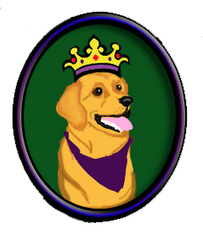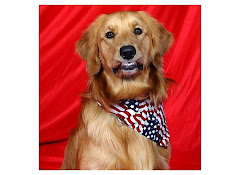Eating Grass....why does my dog graze?
Read more!
Dogs do a lot of things that we don’t really understand, one
of which is eating grass. Why do dogs eat grass?
Firstly, dogs eating grass is actually very common. Wild
dogs as well as domestic dogs will eat vegetation sometimes. One study showed
that approximately 75% of dogs had eaten grass or plants at some time…grass
being the most commonly eaten plant.
Okay, so my dog’s behavior is not unusual. But WHY do they
eat grass?
There many theories as to why dogs eat grass.
It may be nothing more than a natural behavior. Dogs are, in
a certain sense, omnivores. Before being domesticated, dogs ate whatever they
could hunt or scavenge. They would eat whole prey animals, including meat,
bones, organs, and the content of the stomachs, which more often that not
included plant material. This provided a balance diet for the dog. Wild dogs
still eat vegetation in addition to prey items.
Sometimes dogs eat grass as a means to make themselves throw
up. Perhaps the dog has an upset stomach, or even something such as acid
reflux, making them uncomfortable. Vomiting often makes them feel better. Most
often the dog will not act sick, so it is hard to know why they are doing it.
The majority of dogs that eat grass, however, do not throw up. In fact, studies
show that only about 25% of dogs that eat grass vomit regularly after doing so.
One interesting study reveals that the way dogs eat grass makes a difference.
Dogs that eat grass slowly and chew it rarely get sick. Dogs that eat grass
rapidly and swallow it without chewing almost always throw up. Whether this is
on purpose or not is not know for sure, but it certainly seems to be deliberate
on the dog’s part.
One of the beagles I have now will sometimes run out into
the yard, quickly gobble down a few mouthfuls of grass, and promptly throw it
up. Once he does that, he seems fine and eats his meal with no problem.
Another theory is that dogs eat grass as means to improve
digestion by adding fiber to their diet. Grass can also provide some nutrients
that may be missing from some commercial diets.
Other theories include grass eating from boredom, or a
condition called Pica, which is a compulsion to eat items that are not edible.
If your dog exhibits anxiety before eating grass, it may be the result of a
psychological condition. A vet should be consulted to determine if there is a
medical condition underlying the anxiety. There are ways to treat anxiety with
either medication or behavioral training.
Lastly, dogs may eat grass simply because they enjoy it.
Just as humans eat some foods simply because they enjoy the taste and/or
texture, dogs may be doing exactly the same thing. If this is the case, the dog
will rarely ever vomit. I once had a terrier that would graze like a cow,
happily munching on grass and leaves to her heart’s content. Never once did it
make her sick. She simply liked it.
Should grass eating be something to worry about?
The general consensus is that grass eating is not anything
to be concerned about. If your dog eats grass and throws up often, it is best
to let a vet determine if there are health issues behind the behavior. If you
have a grazer like my terrier, there is no reason to interfere with their grass
eating, but keeping an eye on them is always a good idea.
There are instances where grass eating should be avoided.
Often lawns are treated with chemicals. Herbicides and pesticides used on
lawns are quite toxic, especially if ingested. The dog may ingest the chemicals
by eating the grass, or by licking their paws after walking on treated grass. Treated
areas should be avoided at all cost. The ASPCA Animal
Poison Control
Center can help if you
think your dog has ingested these chemicals. They also have a list of toxic
plants that your dog should never eat.
If your dog is eating grass, carefully monitor its behavior
and seek veterinary advice if there seems to be health or behavioral issues.
Keep your dog away from treated areas, and keep an eye on the types of plants
they are eating.
More often than not, your dog is just doing something dogs
have always done. In most cases, there is nothing to be concerned about.
Read More......













































